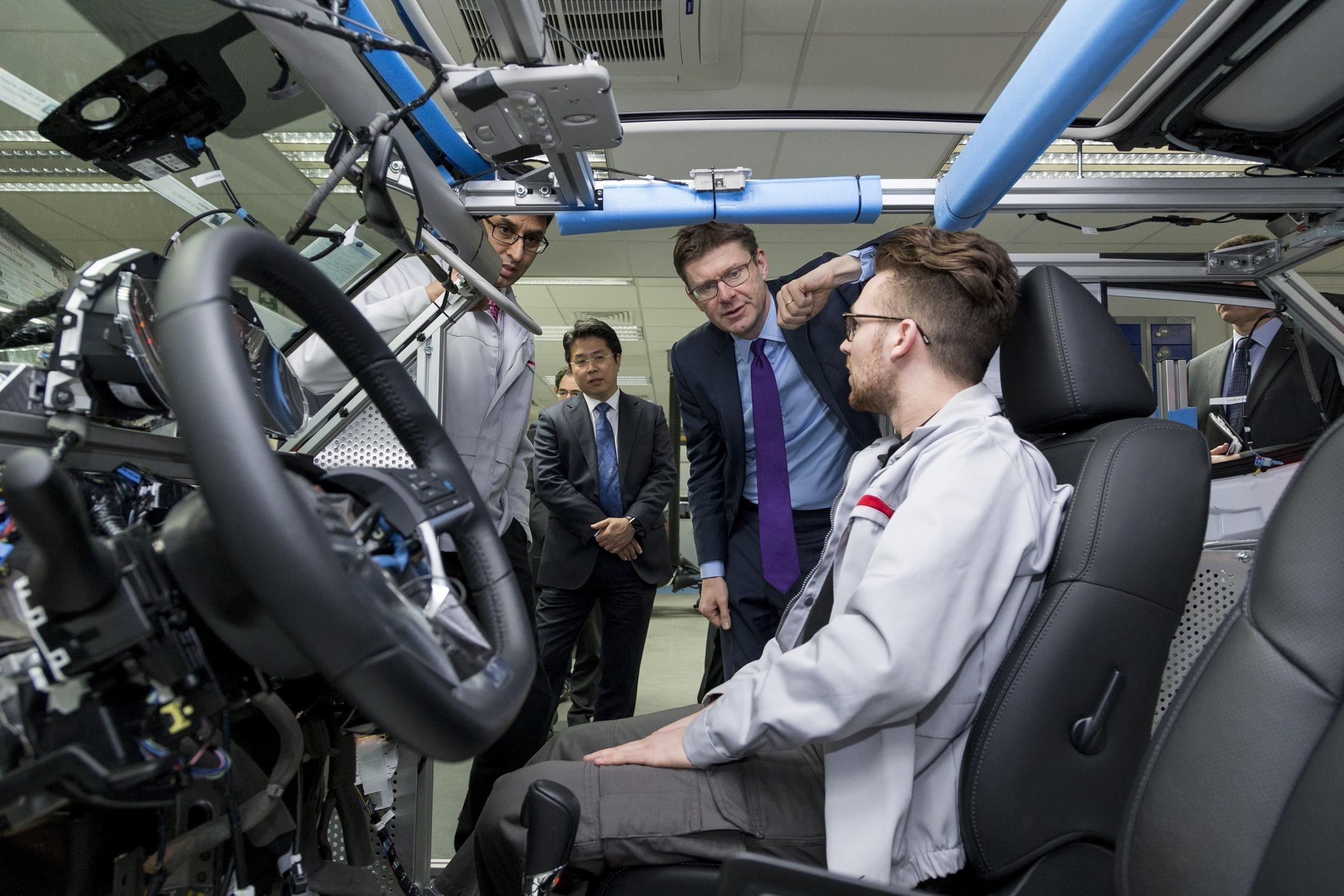Brexit: Government didn't offer Nissan money to stay in UK
Exclusive: Whitehall sources reveal the letter which led the car manufacturer to commit to the UK contained no figure for potential compensation

Your support helps us to tell the story
From reproductive rights to climate change to Big Tech, The Independent is on the ground when the story is developing. Whether it's investigating the financials of Elon Musk's pro-Trump PAC or producing our latest documentary, 'The A Word', which shines a light on the American women fighting for reproductive rights, we know how important it is to parse out the facts from the messaging.
At such a critical moment in US history, we need reporters on the ground. Your donation allows us to keep sending journalists to speak to both sides of the story.
The Independent is trusted by Americans across the entire political spectrum. And unlike many other quality news outlets, we choose not to lock Americans out of our reporting and analysis with paywalls. We believe quality journalism should be available to everyone, paid for by those who can afford it.
Your support makes all the difference.The letter the Government sent to Nissan to convince it to stay in the UK, contained no figure relating to how much the company might be compensated, The Independent has learnt.
Whitehall sources revealed the controversial message which led the car manufacturer to commit to the UK, was based solely on reassurances that it would not lose out from Brexit.
It emerged as Nissan said it would review the competitiveness of its car plant in Sunderland once the final outcome of Brexit negotiations becomes clear, after stating last year that it was investing in new models at the factory.
A Whitehall source told The Independent: “There was no specific promise of money. It was a gentleman’s agreement, a case of doing whatever it took to keep Nissan happy.”
They denied that Theresa May offered a “blank cheque” from taxpayers to compensate the firm for Brexit-related costs, which could increase following the Prime Minister’s announcement that the UK will leave the single European market.
After Greg Clark, the Business Secretary, visited Tokyo for talks with Nissan bosses, the company announced in October that its Qashqai and X-Trail SUV ranges would be built at its Sunderland plant, a move that was in jeopardy after the referendum vote.
Ministers’ refusal to publish the letter for reasons of commercial sensitivity fuelled speculation that it included a specific pledge of public money for the private firm.
Sources insisted that taxpayers would not lose out overall. For example, if the Government compensated Nissan for any tariffs paid to the EU after Brexit, they could be outweighed by the tariffs paid by German car makers to the UK.
They suggested that Nissan could get Government aid “in kind”, possibly through grants for skills training and apprentices, and funding infrastructure projects, such as new roads.
A Department for Business, Energy and Industrial Strategy spokesperson said: “As the Business Secretary told the House on 31 October, there were four reassurances that were important in securing this investment for Britain.
“That the Government would continue its longstanding programme of support for the competitiveness of the automotive sector; that the Government would continue to work with the automotive sector to ensure more of the supply chain can locate in the UK; that the Government will maintain a strong commitment to the research and development, and take up of ultra-low emission vehicles [and] that the Government in its negotiations to leave the EU will emphasise the common ground that exists between ourselves and EU member states to ensure that trade between us can be free and unencumbered.”
Speaking to reporters at the World Economic Forum in Davos, Switzerland, Nissan chief executive Carlos Ghosn said the company trusted the Prime Minister’s assurance, but added that the firm would want to “re-evaluate the situation” once the final Brexit deal is concluded.
According to Reuters, Mr Ghosn said: “Obviously when the package comes, you are going to have to re-evaluate the situation, and say, ‘Okay, is the competitiveness of your plant preserved or not?’
“We are going to have to make decisions on investment within the next two to three years, so obviously the faster the Brexit results come, the better it is.”
The Wall Street Journal reported him as adding: “In the meantime, we are going to continue to run Sunderland with the assumption that Sunderland will remain competitive no matter what is the outcome of Brexit.”
Ms May and Mr Clark may face questions over Nissan and other foreign manufacturers when they unveil the Government’s “modern industrial strategy” on Monday.
After the Prime Minister’s announcement on the single market, Toyota said it was considering “how to survive” in the UK.
Takeshi Uchiyamada, chairman of the company, said that his firm would have to ramp up its competitiveness in order to weather the effects of Brexit.
Join our commenting forum
Join thought-provoking conversations, follow other Independent readers and see their replies
Comments